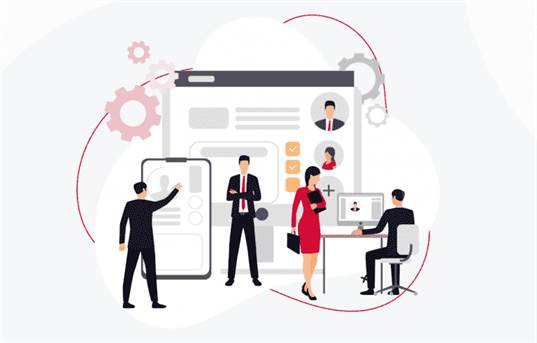Cloud-Based CRM System: Is it Safe and What Are the Benefits?
To mitigate this obstacle, it’s vital that organizations develop intelligent search tools integrated into their CRM systems. These tools are designed to allow users to quickly locate specific sets of records within huge databases, allowing them to complete projects much more efficiently. Your customer information is scattered across numerous programs, multiple teams, and possibly even third-party companies.
Luckily, cloud based CRM integrates well with most programs, tools, and software you already use. Not only do you save time and money in the long term as mentioned above, but you reap yet more perks. Beyond sales management, your CRM facilitates the seamless nurturing and improvement of customer relationships. With a holistic view of each customer’s interactions, preferences, and history, you can personalize your approach, anticipate their needs, and provide tailored solutions.
Join Our Mailing List
This usually isn’t an issue for larger organizations, but can be a major setback for small- and mid-sized businesses. Depending on the CRM you choose your sales team may need to catalog a lot of data manually. This can certainly add up over the course of a week, month, quarter, and year, ultimately resulting in less time spent actively selling. As with any software implementation, without an organized plan of action to encourage adoption, it’s nearly impossible to convert your employees to new software users. If you want your company to be successful with CRM, you need a plan for introducing it, setting expectations for employees, and making sure everyone understands how using CRM will help them.

Moreover, you don’t need them installed on a specific number of devices because you can access the database and related tools at any point from any device if there’s an internet. Those remote servers can then be accessed through a cloud network. The databases usually need several specialized servers just for storage. An often underestimated fact is that these require a lot of space. If your office can’t afford to delegate space to them, you are so much better off with the cloud.
PROs of Cloud Based CRM
The cloud customer relationship management software makes data easily accessible to remote staff, regardless of their location. Within the software configurations, user permissions can be set. The privileges are set for each end-user to enhance the experience and provide ease. The centralized data accessibility improves the security and boosts the team’s collaboration as well. Anytime anywhere access to simple to complex data from web and mobile makes managing business and customer’s bond stress-free. If something happens to the servers that support the cloud space, you can’t see it coming.

Anytime you begin using new software or hardware in your office, you have to deploy and install it. Before that happens, the decision on which software to choose has to be made. An on-premise CRM, for all its costs and disadvantages, at least prevents anyone outside of the physical office from getting into the cloud. CRM software in the cloud has no such fees and charges and their all-inclusive pricing plans are so structured that even startups on a tight budget should be able to use it.
Ready to Start Shopping?
HubSpot’s app marketplace allows you to purchase additional functionality from partners to suit your unique business needs. The CRM also integrates with many of the most common sales and marketing softwares that you may already be using. Poorly implemented CRM can’t scale up with your growing business. As your company adds more users and clients, your CRM will start getting slower, causing you to abandon it or find another solution. It is important that businesses implement a CRM that can adapt to new challenges as they arise. Customer relationship management software is designed to help businesses manage their interactions with customers.

You should also make sure that your employees understand why they need to use it and how the software would help them. Implementing CRM software can be both costly and time-consuming. This is mainly due to what many people perceive as a steep learning curve.
What is Cloud-Based CRM?
It takes time, effort, money, training, and organizational culture change. CRM software has become an indispensable component of many businesses, especially those that have multiple departments or locations. However, there are challenges in CRM adoption, integration, and implementation that can sometimes affect https://www.globalcloudteam.com/ performance or simply make the software more difficult to use. Maybe it’s not you but your senior colleagues who need convincing of the need for change. So we’ve prepared a handy list of next steps to take back to your business that will help address the concerns your colleagues (and you!) might have.
- The privileges are set for each end-user to enhance the experience and provide ease.
- For example, marketing teams can rely on automation to segment customers, then design, publish and report on targeted campaigns.
- From there, the data is analyzed to tell your team how and where to best interact with customers and leads for the best customer experience.
- Then, to elevate complaints, you can use the chatbot to trigger a ticket within your CRM, routing customers to team members who can best respond.
- We’ve talked a lot thus far about money and what you’ll spend and save as you make the move to the best cloud based CRM software.
The Software as a Service web and mobile application offers a robust platform to businesses to establish an everlasting bond with the customers. Lastly with the growth of mobile technology, we presently also have Cloud-based CRM system applications that are built for tablets and smartphones. Collaborative CRM systems focus on integrating contacts with external agencies, cloud-based CRM like distributors and vendors, and cater this data to its customers through an extranet. If you want a fully functional business online, you’ll need to implement a lot of CRM solutions. These will convert your potential customers into real customers, allow you to create a comfortable user experience for them, and increase the sales opportunities for you.
Integration With Other Apps
In addition, CRM can also be the reason why businesses might find it difficult to maintain direct interaction with their customers. Apart from external threats, the most common threat of misuse of the CRM system businesses has to deal with lies internally. Multiple users can have access to the information available on the CRM. That is why they can use it to access and utilize it for any activity they want. In addition, the growing concern and the rising cyber-attacks are something that is taking businesses by storm. Without proper knowledge of the security features of the CRM, your business is likely to fall victim to such attacks.

Another factor is that if your mobile devices are not used by primary CRM actors, then it isn’t going to make much difference at all. For all the fanfare surrounding Cloud CRM software there are also some Cloud CRM disadvantages to consider before you decide to invest in a Cloud-based system for your company. In fact, Cloud-based applications can be far more economical than their standalone counterparts. That can make being willing to weigh the disadvantages hard to do with a neutral eye. After all, the bottom line often makes a lot of decisions, but when it comes to CRM the bottom line is productivity and not cost. It can be worth it to spend more if the final result overall is increased profit.
Upgrades Don’t Cost an Arm and a Leg
The cloud-based CRM solutions today are automated and managed by third-party service providers. The user just needs to have a sign-in account to run the CRM on any device. The easy and seamless deployment of CRM systems makes it an ideal choice for modern businesses. It offers key features like marketing automation, lead capture forms, notes storage, email marketing, task management, integration capabilities and analytics dashboards. These features, when used together, help companies learn about their leads and customers, which offer them personalized experiences that nurture them to buy. All of these benefits come together to help companies offer better lead and customer experiences, ultimately boosting lead conversion rates and customer lifetime values.

